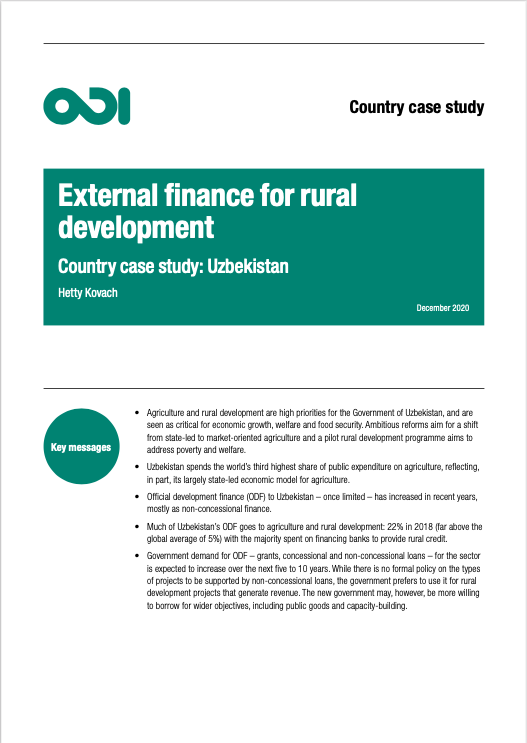development
AGROVOC URI: http://aims.fao.org/aos/agrovoc/c_331049
Participatory scenario development to address potential impacts of land use change: An example from the Italian alps
Changes to land use such as the removal of natural vegetation and expansion of urban areas can result in degradation of the landscape and an increase in hydro-meteorological risk. This has led to higher interest by decision-makers and scientists in the future consequences of these drivers. Scenario development can be a useful tool for addressing the high uncertainty regarding modeling future land use changes. Scenarios are not exact forecasts, but images of plausible futures.
Scenario analysis for integrated water resources management under future land use change in the Urmia Lake region, Iran
Arid and semi-arid regions are particularly vulnerable to global environmental change because of their fragile climatic conditions. The rapid development of land use is expected to affect aquatic ecosystems in these regions. In this study, we focused on how land use change affects the stream flow and inflow to Urmia Lake in the Mordagh Chay basin, Iran. This case-study exemplifies dynamics found across a much larger region. We mapped changes in land use between 1993–2015 using satellite imagery and modeled future changes using the Dyna-CLUE model.
Modeling urban development and its exposure to river flood risk in Southeast Asia
Countries in Southeast Asia have been developing quickly from a predominantly rural to predominantly urban society, leading to a rapid increase in urban land. This increase in urban land has mainly occurred in river deltas and floodplains, exposing humans and human assets to flood hazard. Here we present an assessment of current and future flood risk in five countries of mainland Southeast Asia, using a new modeling approach that accounts for differences in urban land systems.
External finance for rural development
This country case study summarises key findings from a country analysis of financing for rural development in Uzbekistan. It is one of 20 analyses that is synthesised for comparison in Prizzon et al. (2020).
The case study has two main objectives:
• to map demand from the Government of Uzbekistan over the next five to 10 years for external development assistance to support public investment in inclusive and sustainable rural development
Land Productivity and Economic Development: Caloric Suitability vs. Agricultural Suitability
This paper establishes that the Caloric Suitability Index (CSI) dominates the commonly used measure of agricultural suitability in the examination of the effect of land productivity on comparative economic development. The analysis demonstrates that the agricultural suitability index does not capture the large variation in the potential caloric yield across equally suitable land, reflecting the fact that land suitable for agriculture is not necessarily suitable for the most caloric-intensive crops.
Strengthening the State: Logging and Neoliberal Politics in East New Britain, Papua New Guinea
In this paper I will examine how logging in Papua New Guinea affects the relationship between the state and the local communities on whose lands logging operations take place. The point of departure of my argument is the Ili- Wawas Integrated Project, a combined logging and agricultural project which seeks to bring economic development to the remote Pomio district of East New Britain Province by connecting existing logging roads to the limited national road network around the provincial capital.
Implementation of Prototyping Method on Website Development of Land use Mapping
Increasing diversity of urban activity attracts many people to try their fate in urban areas so as to heighten the flow of urbanization. This resulted in a large demand for land supply to accommodate the increasing number of city dwellers. On the other hand, land is a very limited resource and cannot be created or renewed, so the problem that often arises is the proliferation of slum and squatter areas in urban areas. The solution to the problem is to produce a land use website.
Land Ownership and Development Incentives: the Capitalization Externality.
land ; property ; production
Strengthening the State: Logging and neoliberal politics in East New Britain, Papua New Guinea
In this paper I will examine how logging in Papua New Guinea affects the relationship between the state and the local communities on whose lands logging operations take place. The point of departure of my argument is the Ili- Wawas Integrated Project, a combined logging and agricultural project which seeks to bring economic development to the remote Pomio district of East New Britain Province by connecting existing logging roads to the limited national road network around the provincial capital.
Urban Land Markets and Urban Land Development: an Examination of Three Brazilian Cities: Brasília, Curitiba and Recife
This paper synthesizes and extends the results of urban land market studies carried out in three Brazilian cities – Brasília, Curitiba and Recife. The purpose of the studies is to empirically assess the performance of urban land markets in different cities and to gauge the feasibility of applying the Land Market Assessment methodology in Brazil.
The effects of land registration on financial development and economic growth - a theoretical and conceptual framework
The author develops a theoretical framework to guide empirical analysis of how land registration affects financial development and economic growth. Most conceptual approaches investigate the effects of land registration on only one sector, nut land registration is commonly observed to affect not only other sectors but the economy as a whole. The author builds on the well-tested link between secure land ownership and farm productivity, adding to the framework theory about positive information and transaction costs.


